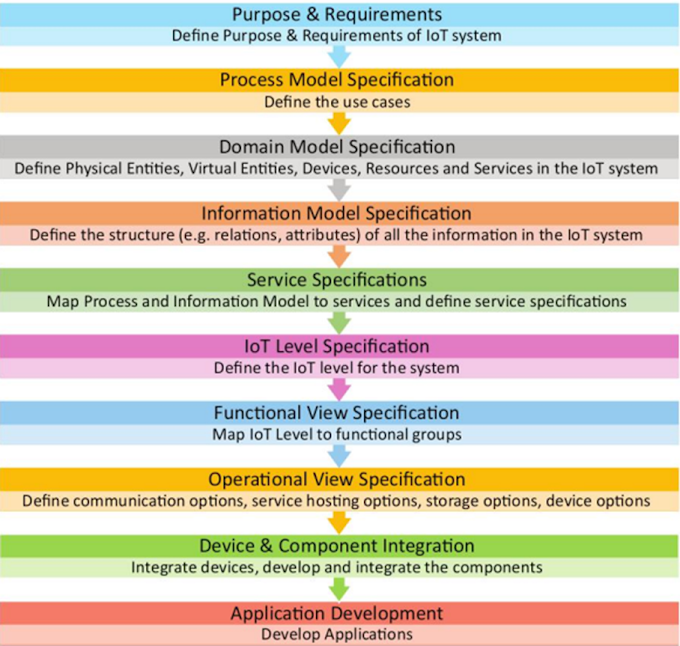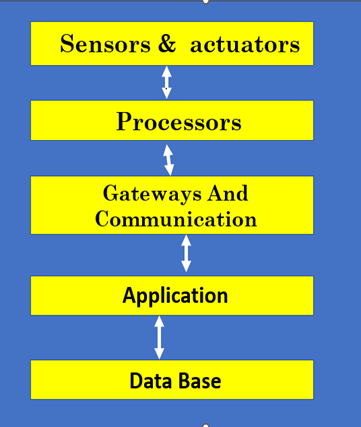DATA INDEPENDENCE IN DBMS
·
Data independence is described by the
three-tier schema architecture.
·
When we modify the schema at one
level then other level schemas are not modified or
changed.
·
Helps to keep data separated from all
programs which used it.
·
Stored data is used for calculating
and presentation.
Levels of Database (abstraction)
The database is used by 3 levels which are:-
- Physical/Internal
- Conceptual
/ logical
- External
/view (visible to the multiple
end-users)
View level (highest level/ external)
- ·
Describe how
the data is viewed by different users.
- ·
Show user
interaction with the database by GUI to enter the data as a form format or some
other set format.
Example:
- student registration form
|
Student
Name |
|
Enrolment
Number |
|
|
Telephone
Number |
|
Student
Name |
|
|
Highest
Qualification |
|
Address |
|
|
Professional
Skill |
|
Telephone
Number |
|
|
|
|
Highest
Qualification |
|
conceptual level (middle level / logical level)
·
Define the logical
structure of the database schema.
·
Describes what
and which type and size of data are stored in the database.
·
Programmers implement
this by programming languages.
Example: - student registration table
|
Enrolment
Number |
Key:
Numeric |
|
Student
Name |
String |
|
Address |
String |
|
City |
String |
|
Pincode |
Numeric |
|
Telephone
Number |
Numeric |
|
Highest
Qualification |
String |
|
Professional
Skill |
String |
Physical level (internal schema/ lowest level)
·
Defines how the
data /database is stored in storage devices.
·
Use detailed
and complex data structures.
- ·
Data is stored
as blocks of memory in bytes, gigabytes, terabytes, etc. with complex memory
storage.
- ·
Information is
not visible to the programmers.
Example: - student registration table records storage spaces
|
Enrolment Number |
9 digit number
representation at offset 0 |
|
Student Name |
25 character string
at offset 9 |
|
Address |
30 character string
at offset 34 |
|
City |
20 character string
at offset 64 |
|
Pincode |
…. |
|
Telephone Number |
…. |
|
Highest
Qualification |
…. |
|
Professional Skill |
….. |
All level is independent of each other,
so if make changes at one level, then the other level is not required to make changes.
Types of Data Independence
In DBMS data independence are two types
- Physical
data independence
- Logical
data independence.
Physical Data Independence
·
Helps to separate conceptual levels from the internal/physical
levels.
·
Provide a logical description of the database without any
physical structures information.
·
Modification or changes in the physical storage structures or
devices, not effect on the conceptual schema.
·
Some changes in physical level as
·
Use new storage devices like Hard drives or Magnetic Tapes or Change
the Location of Databases from one to another ex. C drive to D Drive
·
Modify the file organization technique and Modify indexes in
the Database.
·
Switching to different data structures and Changing the access
method.
·
Modifying the compression techniques or hashing.
·
Due to the above-mentioned reasons at the Physical level, no change
will affect the conceptual layer.
Logical Data Independence
·
Logical Data Independence is the change of the conceptual scheme
without any changes in External views (API or programs) and physical level.
·
In logical level, some changes are:-
·
Add/Modify/drop a new attribute, entity, constraints or
relationship.
·
Merging / Breaking two or more records into one or more
relations.
Importance/advantages of Data Independence
- Helps to
improve the quality of the data
- Inexpensive database system maintenance.
- Implementation
of standards and constraints and improvement in database security.
- No need
to modify a data structure in application programs
- Database designers
mainly focus on the general structure of the Database rather without any
tension to implementation at physical storage.
- Easily modifications
in the physical level to improve the performance of the system.
Difference between Physical and Logical Data Independence
|
Logical
Data Independence |
Physical
Data Independence |
|
Mainly
concerned with the structure or changing the data definition. |
Mainly
concerned with the storage of the data. |
|
Difficult
the retrieve data |
Easy
to retrieve. |
|
Difficult
to achieve logical data independence. |
Easy
to achieve physical data independence. |
|
Changes
in the Application program if new fields are added or deleted from the
database. |
No need to change the Application program if a new drive or storage is added,
change or remove from the system. |
|
Modification/
changes at the logical levels are significant whenever the logical structures
of the database are changed. |
Modifications
made at the internal levels may or may not be needed to improve the
performance of the structure. |




0 Comments